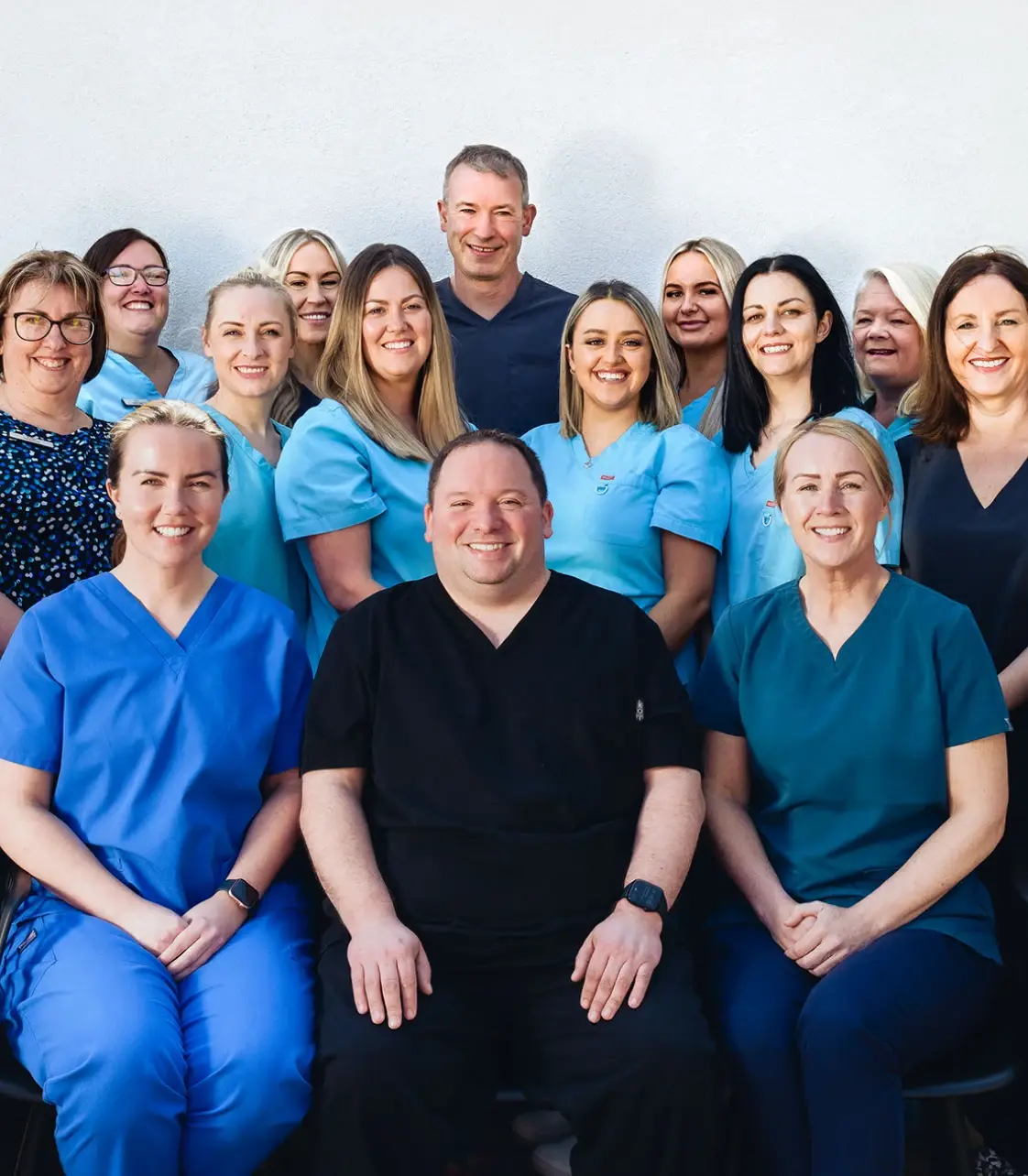
Who suffers from sensitive teeth?

Many people suffer from sensitive teeth and it can start at any time. It is more common in people aged between 20 and 40, although it can affect anyone from teenagers to people over 70. Women are more likely to be affected than men.
What causes sensitive teeth?
The part of the tooth we can see above the gum is covered by a layer of enamel that protects the softer dentine underneath.
If the dentine is exposed, a tooth can become sensitive. This usually happens where the tooth and the gum meet and the enamel layer is much thinner.

What causes sensitive teeth?

Here are some causes of sensitivity:
- Toothbrush abrasion – brushing too hard, and brushing from side to side, can cause enamel to be worn away, particularly where the teeth meet the gums. The freshly exposed dentine may then become sensitive.
- Dental erosion – this is loss of tooth enamel caused by attacks of acid from acidic food and drinks. If enamel is worn away, the dentine underneath is exposed which may lead to sensitivity.
- Gum recession – gums may naturally recede (shrink back), and the roots will become exposed and can be more sensitive. Root surfaces do not have an enamel layer to protect them.
- Gum disease – a build-up of plaque or tartar can cause the gum to recede down the tooth and can even destroy the bony support of the tooth. Pockets can form in the gum around the tooth, making the area difficult to keep clean and the problem worse.
- Tooth grinding – this is a habit which involves clenching and grinding the teeth together. This can cause the enamel of the teeth to be worn away, making the teeth sensitive.
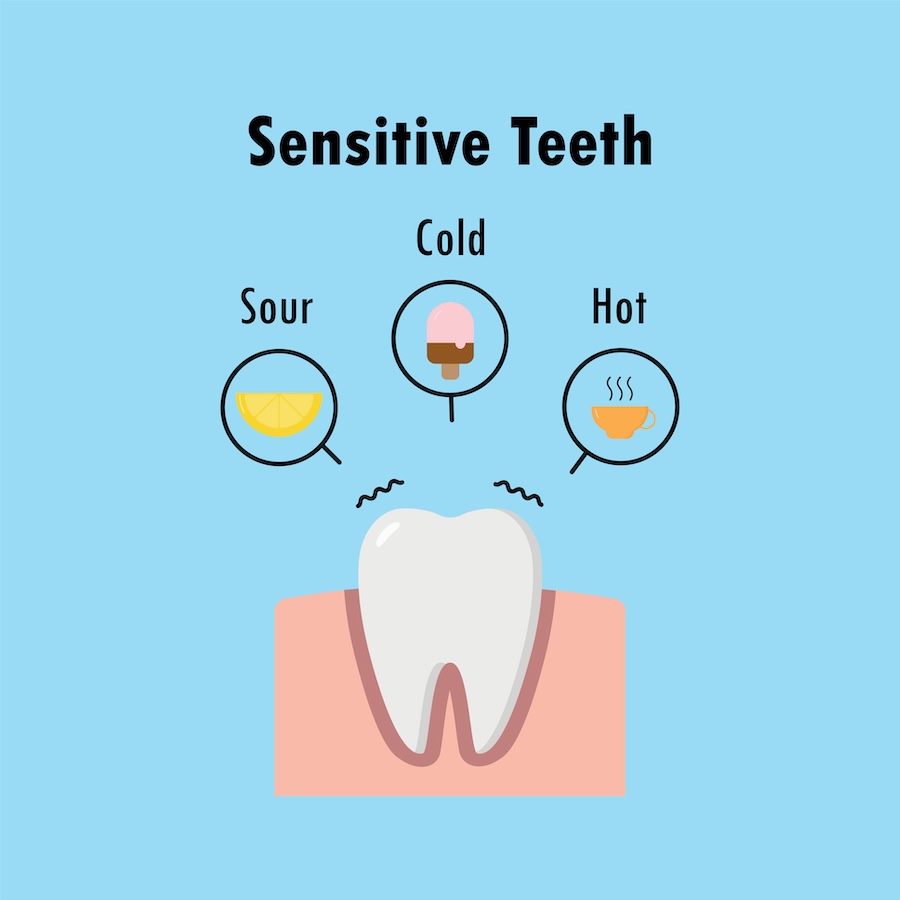
Other causes of pain from sensitivity may be:

- A cracked tooth or filling – a crack can run from the biting surface of a tooth down towards the root. Extreme temperatures, especially cold, may cause discomfort.
- Tooth bleaching – some patients have sensitivity for a short time during or after having their teeth bleached. Talk to your dentist about this before having treatment.
When are teeth more likely to be sensitive?
You are more likely to feel the sensitivity when drinking or eating something cold, from cold air catching your teeth, and sometimes with hot foods or drinks. Some people have sensitivity when they have sweet or acidic food and drink. The pain can come and go, with some times being worse than others.
Is there anything I can do to treat sensitive teeth at home?
There are many brands of toothpaste on the market made to help ease the pain of sensitive teeth. Use the toothpaste twice a day to brush your teeth. You can also rub it onto the sensitive areas.
These toothpastes can take anything from a few days to several weeks to take effect. Your dentist should be able to advise you on which type of toothpaste would be best for you.
Is there anything I should avoid if I have sensitive teeth?
You may find that hot, cold, sweet or acidic drinks, or foods like ice cream can bring on sensitivity, so you may want to avoid these. If you have sensitivity when brushing your teeth with cold water from the tap, you may need to use warm water instead. It is important you do not avoid brushing your teeth regularly as this could make the problem worse.
What treatments can the dentist offer?
During an examination the dentist will talk to you about your symptoms. They will look at your teeth to find out what is causing the sensitivity and to find the best way of treating it.
The dentist may treat the affected teeth with special de-sensitising products to help relieve the symptoms.
Fluoride gels, rinses or varnishes can be applied to sensitive teeth. These can be painted onto the teeth at regular appointments one or two weeks apart, to build up some protection. Sensitivity can take some time to settle, and you may need to have several appointments.
If this still does not help, your dentist may seal or fill around the neck of the tooth, where the tooth and gum meet, to cover exposed dentine.
In very serious cases it may be necessary to root-fill the tooth.
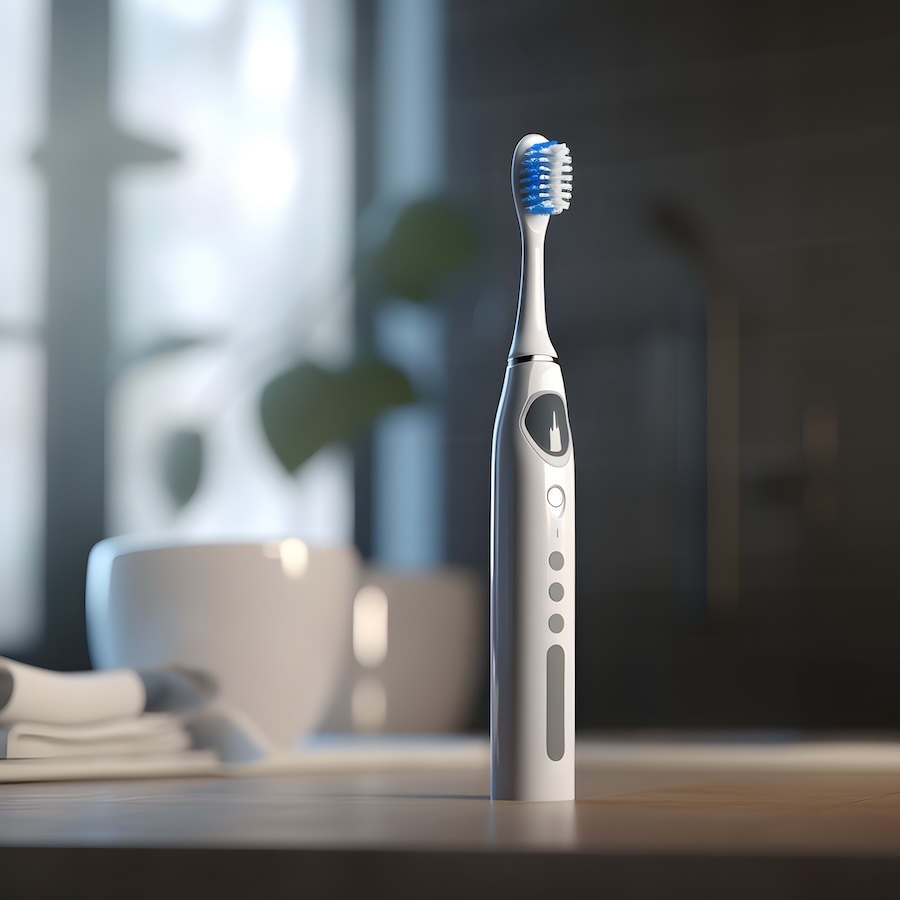
How can I prevent sensitive teeth?

- Brush your teeth twice a day for two minutes with a fluoride toothpaste containing at least 1350ppm (parts per million) of fluoride. Use small circular movements with a soft- to medium-bristled brush. Try to avoid brushing your teeth from side to side.
- Change your toothbrush every two to three months, or sooner if it becomes worn.
- Have sugary foods, and fizzy and acidic drinks less often. Try to have them only at mealtimes.
- If you grind your teeth, talk to your dentist about the possibility of having a mouthguard made for you to wear at night.
- If you are thinking about having your teeth bleached, talk to your dentist about sensitivity before starting treatment.
- Visit your dentist regularly, as often as they recommend.
If you would like to discuss these options further please call us on 01248 787878 or book an appointment below.
Why Choose Us?
The Latest
Technology
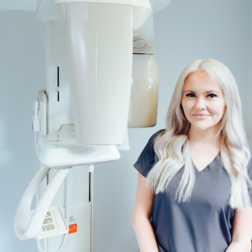
Over 10 years experience boasting state-of-the-art technology.
Affordable
Dental Plans
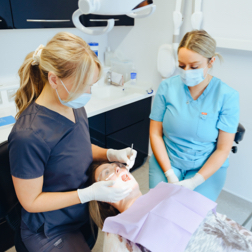
Dental Plans from £14.95 per month with access to exclusive discounts.
Emergency Care
in 24 Hours

We will always endeavour to see a patient in pain within 24 hours.
Welsh
Speaking

Most of our team are Welsh speakers, allowing you to speak in your language of choice.
Our Friendly Dental Team
Our enthusiastic and knowledgable team have the experience and ability to be able to deliver dental advice and treatments at an impeccable level of patient care.
Emma Biddlestone
Dental Nurse
Dr Glesni Llwyd
Dentist
Bridget Jones
Receptionist
Amanda Jones
Dental Nurse
Dr Geraint Buse BDS (Hons)
Principal Dentist
Jenny Jones
Practice Manager
Carly Hopkinson
Hygienist
Dr Dan Jones BDS (Hons)
Dentist
Lisa Williams
Dental Nurse
Dr Carys Harper Lloyd BDS
Dentist
Helen Davies
Dental Nurse
Catrin Williams
Trainee Dental Nurse
Lois Maple
Trainee Dental Nurse
Lowri Burgess
Dental Nurse
Sophie Gordon
Dentist
Pam Williams
Dental Nurse
Dr Liam McGrath
Implant Practitioner
Rebecca Fauré
Therapist/ Hygienist
Emma Biddlestone
Dental Nurse
Dr Glesni Llwyd
Dentist
Bridget Jones
Receptionist
Amanda Jones
Dental Nurse
Dr Geraint Buse BDS (Hons)
Principal Dentist
Jenny Jones
Practice Manager
Carly Hopkinson
Hygienist
Dr Dan Jones BDS (Hons)
Dentist
Lisa Williams
Dental Nurse
Dr Carys Harper Lloyd BDS
Dentist
Helen Davies
Dental Nurse
Catrin Williams
Trainee Dental Nurse
Lois Maple
Trainee Dental Nurse
Lowri Burgess
Dental Nurse
Sophie Gordon
Dentist
Pam Williams
Dental Nurse
Dr Liam McGrath
Implant Practitioner
Rebecca Fauré
Therapist/ Hygienist
Emma Biddlestone
Dental Nurse
Dr Glesni Llwyd
Dentist
Bridget Jones
Receptionist
Amanda Jones
Dental Nurse
Dr Geraint Buse BDS (Hons)
Principal Dentist
Jenny Jones
Practice Manager
Carly Hopkinson
Hygienist
Dr Dan Jones BDS (Hons)
Dentist
Lisa Williams
Dental Nurse
Dr Carys Harper Lloyd BDS
Dentist
Helen Davies
Dental Nurse
Catrin Williams
Trainee Dental Nurse
Lois Maple
Trainee Dental Nurse
Lowri Burgess
Dental Nurse
Sophie Gordon
Dentist
Pam Williams
Dental Nurse
Dr Liam McGrath
Implant Practitioner
Rebecca Fauré
Therapist/ Hygienist
Where to find us
- Holyhead Road
- Llanfair Pwllgwyngyll
- Anglesey
- LL61 5TX
Get in touch with us
Why choose us?
- 1 Over 10 years experience boasting state-of-the-art technology
- 2 Dental Plans from £14.95 per month with access to exclusive discounts
- 3 Dental Implants that appear and function like a natural tooth
- 4 Most of our team are Welsh speakers, allowing you to speak in your language of choice


